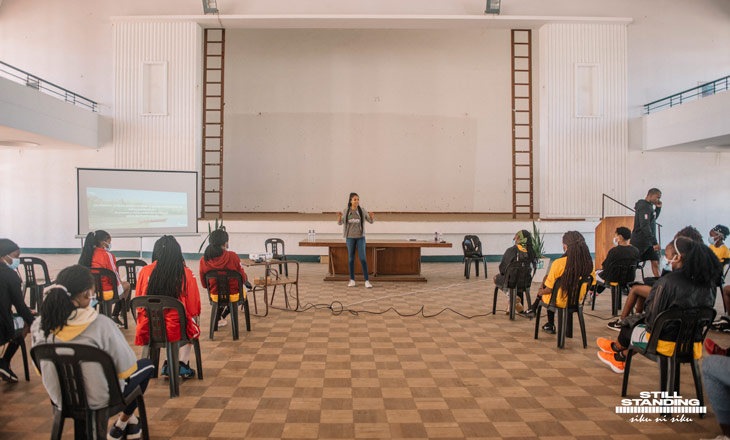Still Standing, the Foundation for the Conservation of Biodiversity (BIOFUND), through the Biodiversity Offsets Programme, and the Wildlife Alliance, as part of the celebrations of World Environment Day, on 5 June, held a lecture in the Josina Machel Secondary School, in Maputo city, on the importance of mangroves and pangolins for the environment.
Published at 17/06/2021
Still Standing, BIOFUND and the Wildlife Alliance raise awareness among students about the importance of mangroves and of pangolins for the environment
The Coordinator of the Biodiversity Offsets Programme, and a specialist on mangroves, Denise Nicolau, said that Mozambique possesses the 13th largest area of mangroves in the world. In Africa, it is considered the third largest area, with nine separate species.
“Mangroves are the habitat for the reproduction of various coastal and marine species, and their roots help to stabilise the soil, preventing erosion. They also form natural barriers against cyclones and strong winds. They help maintain the quality of the water by filtering pollutants. The mangroves provide various benefits for the environment and for living beings, and educating young people about the relevance of this ecosystem prepares our generation and future generations for the task of conserving the mangroves”, stressed Denise Nicolau.
The Wildlife Alliance team, through very didactic language, spoke of the importance of protecting pangolins, and stressed that pangolins play a crucial role in protecting forests from destruction by termites, helping to maintain the balance of the ecosystem, as well as helping fertilise the soil.
The lecture was aimed at girls aged between 14 and 17 years, who have shown that they are actively motivated to contribute towards the preservation of mangroves and pangolins.
The lecture was organised by Still Standing, a Mozambican platform founded in 2014, aimed at Education through Sport (basketball), culture, civic activities and the conservation of biodiversity.



